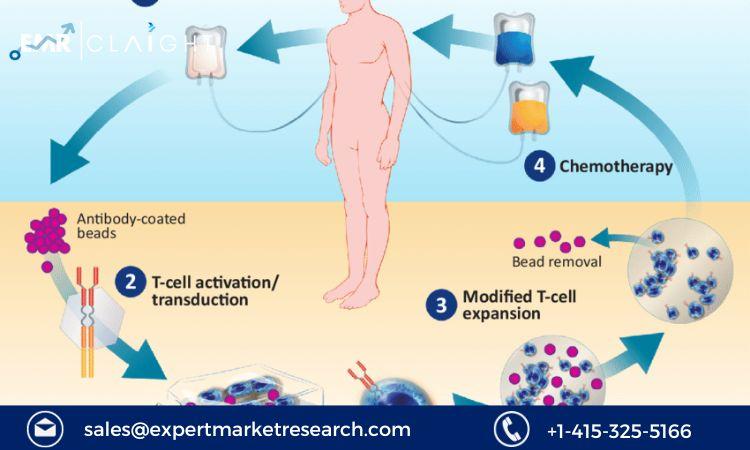Press release
Unlocking the Potential: A Comprehensive Guide to the CAR T-Cell Therapy Market
In 2023, the CAR T-cell therapy market reached a significant milestone, boasting a valuation of USD 1.9 billion. This substantial figure underscores the escalating prevalence of cancer cases across the globe. As we set our sights on the future, the CAR T-cell therapy market appears poised for remarkable growth. A projected compound annual growth rate (CAGR) of 14.50% from 2024 to 2032 paints a promising picture, with the market expected to surge to nearly USD 6.42 billion by 2032. This astounding growth is primarily driven by relentless advancements in healthcare technology and a deep-seated commitment to finding effective cancer treatments.
Request a free sample copy in PDF or view the report summary: https://www.expertmarketresearch.com/reports/car-t-cell-therapy-market/requestsample
CAR T-Cell Therapy Market Overview
What is CAR T-Cell Therapy?
Chimeric Antigen Receptor T-cell therapy, more commonly known as CAR T-cell therapy, represents a groundbreaking immunotherapy technique. At its core, this innovative approach harnesses the body's own immune system to combat cancer. This revolutionary technique involves the genetic modification of a patient's T-cells to express chimeric antigen receptors (CARs) on their surface. These CARs empower T-cells to recognize and target specific proteins or antigens found on cancer cells.
The fundamental principle underpinning CAR T-cell therapy is the creation of a living drug-a customized solution that seeks out and destroys cancer cells, offering a personalized and highly effective treatment option for patients who have exhausted conventional therapies.
CAR T-Cell Therapy Market Dynamics
The Driving Forces
Numerous key factors are propelling the growth of the CAR T-cell therapy market:
1. Rising Cancer Prevalence
Cancer continues to pose a significant global health challenge, with incidence rates steadily increasing. CAR T-cell therapy emerges as a promising solution for various types of cancers, including leukemia, lymphoma, and multiple myeloma.
2. Technological Advancements
Advancements in biotechnology and genetic engineering have laid the foundation for more precise and efficient CAR T-cell therapies. These innovations have substantially improved the safety and efficacy of treatments, expanding their accessibility to a broader patient population.
3. Growing Investment
The CAR T-cell therapy market has attracted substantial investments from both public and private sectors. This influx of funding bolsters research, development, and commercialization efforts, further propelling market growth.
4. Regulatory Support
Regulatory agencies worldwide have acknowledged the potential of CAR T-cell therapy and streamlined approval processes. This has expedited the availability of these therapies to patients in need.
The Challenges
While the CAR T-cell therapy market exhibits tremendous growth potential, it also grapples with certain challenges:
1. High Costs
The development and administration of CAR T-cell therapies demand substantial resources, resulting in elevated treatment costs. This financial burden can strain healthcare systems and patients alike.
2. Limited Availability
CAR T-cell therapies are not universally accessible, and access can be restricted by factors such as geographic location and healthcare infrastructure. Bridging this gap in accessibility remains a pressing challenge.
3. Safety Concerns
Despite advancements in safety measures, CAR T-cell therapies can still induce severe side effects, including cytokine release syndrome and neurologic toxicity. Managing and minimizing these adverse events remains a focal point of research and development efforts.
Explore the full report with the table of contents https://www.expertmarketresearch.com/reports/car-t-cell-therapy-market
External CAR T-Cell Therapy Market Trends
Keeping an Eye on the Horizon
The CAR T-cell therapy market is intricately linked with broader healthcare trends and developments. Several external factors exert influence on the market's trajectory:
1. Personalized Medicine
A notable shift toward personalized medicine has been a driving force behind the development of CAR T-cell therapies. Tailoring treatments to individual patients based on their genetic and immunologic profiles represents a burgeoning trend in oncology.
2. Cell and Gene Therapy Advancements
Advancements in cell and gene therapies extend beyond CAR T-cell therapy. These complementary fields continue to evolve, offering new possibilities for treating various diseases, not limited to cancer.
3. Global Collaborations
Collaborative efforts between research institutions, pharmaceutical companies, and healthcare providers foster innovation in CAR T-cell therapy. These strategic partnerships expedite the development and commercialization of new therapies.
CAR T-Cell Therapy Market Segmentation
Understanding the Diversity
The CAR T-cell therapy market can be segmented along various lines, enabling a nuanced understanding of its complexities:
1. Target Antigen
CAR T-cell therapies are meticulously designed to target specific antigens present on cancer cells. Segmentation based on the target antigen allows for tailored treatments for different cancer types.
2. Indication
Different cancers necessitate distinct treatment approaches. Segmentation by indication facilitates the matching of the right therapy to the right patient population, optimizing treatment outcomes.
3. Region
Market dynamics and patient demographics vary significantly by region. Understanding these regional differences is pivotal for devising effective market expansion strategies.
4. Key Players
The market features several key players, each wielding its own portfolio of CAR T-cell therapies. Conducting a thorough analysis of their offerings, market share, and strategic initiatives is paramount for investors and stakeholders.
5. Off-the-Shelf vs. Autologous CAR T-Cell Therapies
In recent years, the emergence of "off-the-shelf" CAR T-cell therapies has gained prominence. These therapies, in contrast to autologous CAR T-cell therapies (customized for each patient), can be readily available for a broader patient population. The ongoing development and adoption of off-the-shelf approaches represent a noteworthy segmentation within the market.
Recent Developments in the CAR T-Cell Therapy Market
Pioneering Advancements
The CAR T-cell therapy market is a crucible of innovation, where recent developments have the potential to reshape the landscape of cancer treatment:
1. Off-the-shelf CAR T-Cell Therapies
Traditionally, CAR T-cell therapies have been patient-specific, requiring customization for each individual. However, recent research and development endeavors have centered around creating "off-the-shelf" CAR T-cell therapies that can be readily accessible to a wider patient population. This development promises to democratize CAR T-cell therapy and expand its reach.
2. Enhanced Safety Measures
Efforts to mitigate the side effects of CAR T-cell therapies are ongoing. Advanced safety mechanisms and protocols are being developed to minimize the risk of adverse events, making these therapies safer for patients.
3. Expanded Indications
Researchers are actively expanding the range of cancers that can be effectively treated with CAR T-cell therapies. This extends hope to patients with previously untreatable malignancies and broadens the market's potential reach.
CAR T-Cell Therapy Market Analysis
A Bright Future
A comprehensive analysis of the CAR T-cell therapy market reveals a future ripe with promise:
1. Market Size and Growth
The market reached an impressive valuation of USD 1.9 billion in 2023, signaling robust growth. The projected CAGR of 14.50% from 2024 to 2032 anticipates that the market will surge to nearly USD 6.42 billion by 2032, underscoring its tremendous growth potential.
2. Competitive Landscape
The market is highly competitive, featuring several key players vying for dominance. These industry leaders invest heavily in research and development to maintain their edge in this dynamic field. The competitive landscape continues to evolve as new entrants seek to make their mark in the market.
3. Global Reach
CAR T-cell therapies are gaining global acceptance, with increasing adoption observed across diverse regions. This trend is expected to persist and strengthen as accessibility to these therapies improves.
Competitor Analysis
Leaders in the Field
Several key players have emerged as frontrunners in the CAR T-cell therapy market:
1. Novartis
Novartis, a pharmaceutical powerhouse, is renowned for its CAR T-cell therapy, Kymriah. The company has established a robust presence in the CAR T-cell therapy market and continues to allocate significant resources to research and development, fueling innovation in the field.
2. Gilead Sciences (Kite Pharma)
Gilead Sciences made a strategic move by acquiring Kite Pharma, a pioneering force in CAR T-cell therapy, in 2017. This acquisition catapulted Gilead into a prominent position within the market.
3. Bristol Myers Squibb (Celgene)
Bristol Myers Squibb's acquisition of Celgene brought them the CAR T-cell therapy, Breyanzi, bolstering their presence in the market. The company is actively engaged in expanding its CAR T-cell therapy portfolio.
4. Juno Therapeutics (a subsidiary of Bristol Myers Squibb)
Juno Therapeutics, a subsidiary of Bristol Myers Squibb, is known for its CAR T-cell therapy, JCAR017. The company plays a pivotal role in advancing the field through its innovative therapies and research initiatives.
FAQ: Understanding CAR T-Cell Therapy
1. What types of cancer can CAR T-cell therapy treat?
CAR T-cell therapy exhibits promise in treating various cancers, including leukemia, lymphoma, multiple myeloma, and more. Ongoing research endeavors aim to broaden its applications, potentially offering hope to patients with additional cancer types.
2. How does CAR T-cell therapy work?
CAR T-cell therapy operates by genetically modifying a patient's T-cells to express chimeric antigen receptors (CARs), which target specific proteins present on cancer cells. Upon reinfusion into the patient, these genetically modified T-cells actively seek out and eliminate cancer cells.
3. Are CAR T-cell therapies safe?
While CAR T-cell therapies have demonstrated remarkable efficacy, they can precipitate side effects, including cytokine release syndrome and neurologic toxicity. Ongoing advancements in safety measures aim to mitigate these risks, improving the overall safety profile of CAR T-cell therapies.
4. How can I access CAR T-cell therapy?
Access to CAR T-cell therapy may be influenced by regional disparities in healthcare infrastructure and regulations. To explore your eligibility and available options for CAR T-cell therapy, consulting with an oncologist is essential. They can provide guidance based on your specific medical condition and geographic location.
Related Report:
Telmisartan Market
https://www.expertmarketresearch.com/reports/telmisartan-market
Cholera Vaccines Market
https://www.expertmarketresearch.com/reports/cholera-vaccines-market
Congenital Hyperinsulinism Market
https://www.expertmarketresearch.com/reports/congenital-hyperinsulinism-market
Laser Hair Removal Market
https://www.expertmarketresearch.com/reports/laser-hair-removal-market
picture archiving and communication system PACS market
https://www.expertmarketresearch.com/reports/picture-archiving-and-communication-system-pacs-market
Media Contact:
Company Name: Claight Corporation
Contact Person: Joe Goldberg, Business Consultant
Email: sales@expertmarketresearch.com
Toll-Free Number: US +1-415-325-5166 | UK +44-702-402-5790
Address: 30 North Gould Street, Sheridan, WY 82801, USA
Website: www.expertmarketresearch.com
About Us:
Acquire unparalleled access to critical industry insights with our comprehensive market research reports, meticulously prepared by a team of seasoned experts. These reports are designed to equip decision-makers with an in-depth understanding of prevailing market trends, competitive landscapes, and growth opportunities.
Our high-quality, data-driven analyses provide the essential framework for organizations seeking to make informed and strategic decisions in an increasingly complex and rapidly evolving business environment. By investing in our market research reports, you can ensure your organization remains agile, proactive, and poised for success in today's competitive market.
Don't miss the opportunity to elevate your business intelligence and fortify your strategic planning. Secure your organization's future success by acquiring one of our Expert Market Research reports today.
Request a free sample copy in PDF or view the report summary: https://www.expertmarketresearch.com/reports/car-t-cell-therapy-market/requestsample
CAR T-Cell Therapy Market Overview
What is CAR T-Cell Therapy?
Chimeric Antigen Receptor T-cell therapy, more commonly known as CAR T-cell therapy, represents a groundbreaking immunotherapy technique. At its core, this innovative approach harnesses the body's own immune system to combat cancer. This revolutionary technique involves the genetic modification of a patient's T-cells to express chimeric antigen receptors (CARs) on their surface. These CARs empower T-cells to recognize and target specific proteins or antigens found on cancer cells.
The fundamental principle underpinning CAR T-cell therapy is the creation of a living drug-a customized solution that seeks out and destroys cancer cells, offering a personalized and highly effective treatment option for patients who have exhausted conventional therapies.
CAR T-Cell Therapy Market Dynamics
The Driving Forces
Numerous key factors are propelling the growth of the CAR T-cell therapy market:
1. Rising Cancer Prevalence
Cancer continues to pose a significant global health challenge, with incidence rates steadily increasing. CAR T-cell therapy emerges as a promising solution for various types of cancers, including leukemia, lymphoma, and multiple myeloma.
2. Technological Advancements
Advancements in biotechnology and genetic engineering have laid the foundation for more precise and efficient CAR T-cell therapies. These innovations have substantially improved the safety and efficacy of treatments, expanding their accessibility to a broader patient population.
3. Growing Investment
The CAR T-cell therapy market has attracted substantial investments from both public and private sectors. This influx of funding bolsters research, development, and commercialization efforts, further propelling market growth.
4. Regulatory Support
Regulatory agencies worldwide have acknowledged the potential of CAR T-cell therapy and streamlined approval processes. This has expedited the availability of these therapies to patients in need.
The Challenges
While the CAR T-cell therapy market exhibits tremendous growth potential, it also grapples with certain challenges:
1. High Costs
The development and administration of CAR T-cell therapies demand substantial resources, resulting in elevated treatment costs. This financial burden can strain healthcare systems and patients alike.
2. Limited Availability
CAR T-cell therapies are not universally accessible, and access can be restricted by factors such as geographic location and healthcare infrastructure. Bridging this gap in accessibility remains a pressing challenge.
3. Safety Concerns
Despite advancements in safety measures, CAR T-cell therapies can still induce severe side effects, including cytokine release syndrome and neurologic toxicity. Managing and minimizing these adverse events remains a focal point of research and development efforts.
Explore the full report with the table of contents https://www.expertmarketresearch.com/reports/car-t-cell-therapy-market
External CAR T-Cell Therapy Market Trends
Keeping an Eye on the Horizon
The CAR T-cell therapy market is intricately linked with broader healthcare trends and developments. Several external factors exert influence on the market's trajectory:
1. Personalized Medicine
A notable shift toward personalized medicine has been a driving force behind the development of CAR T-cell therapies. Tailoring treatments to individual patients based on their genetic and immunologic profiles represents a burgeoning trend in oncology.
2. Cell and Gene Therapy Advancements
Advancements in cell and gene therapies extend beyond CAR T-cell therapy. These complementary fields continue to evolve, offering new possibilities for treating various diseases, not limited to cancer.
3. Global Collaborations
Collaborative efforts between research institutions, pharmaceutical companies, and healthcare providers foster innovation in CAR T-cell therapy. These strategic partnerships expedite the development and commercialization of new therapies.
CAR T-Cell Therapy Market Segmentation
Understanding the Diversity
The CAR T-cell therapy market can be segmented along various lines, enabling a nuanced understanding of its complexities:
1. Target Antigen
CAR T-cell therapies are meticulously designed to target specific antigens present on cancer cells. Segmentation based on the target antigen allows for tailored treatments for different cancer types.
2. Indication
Different cancers necessitate distinct treatment approaches. Segmentation by indication facilitates the matching of the right therapy to the right patient population, optimizing treatment outcomes.
3. Region
Market dynamics and patient demographics vary significantly by region. Understanding these regional differences is pivotal for devising effective market expansion strategies.
4. Key Players
The market features several key players, each wielding its own portfolio of CAR T-cell therapies. Conducting a thorough analysis of their offerings, market share, and strategic initiatives is paramount for investors and stakeholders.
5. Off-the-Shelf vs. Autologous CAR T-Cell Therapies
In recent years, the emergence of "off-the-shelf" CAR T-cell therapies has gained prominence. These therapies, in contrast to autologous CAR T-cell therapies (customized for each patient), can be readily available for a broader patient population. The ongoing development and adoption of off-the-shelf approaches represent a noteworthy segmentation within the market.
Recent Developments in the CAR T-Cell Therapy Market
Pioneering Advancements
The CAR T-cell therapy market is a crucible of innovation, where recent developments have the potential to reshape the landscape of cancer treatment:
1. Off-the-shelf CAR T-Cell Therapies
Traditionally, CAR T-cell therapies have been patient-specific, requiring customization for each individual. However, recent research and development endeavors have centered around creating "off-the-shelf" CAR T-cell therapies that can be readily accessible to a wider patient population. This development promises to democratize CAR T-cell therapy and expand its reach.
2. Enhanced Safety Measures
Efforts to mitigate the side effects of CAR T-cell therapies are ongoing. Advanced safety mechanisms and protocols are being developed to minimize the risk of adverse events, making these therapies safer for patients.
3. Expanded Indications
Researchers are actively expanding the range of cancers that can be effectively treated with CAR T-cell therapies. This extends hope to patients with previously untreatable malignancies and broadens the market's potential reach.
CAR T-Cell Therapy Market Analysis
A Bright Future
A comprehensive analysis of the CAR T-cell therapy market reveals a future ripe with promise:
1. Market Size and Growth
The market reached an impressive valuation of USD 1.9 billion in 2023, signaling robust growth. The projected CAGR of 14.50% from 2024 to 2032 anticipates that the market will surge to nearly USD 6.42 billion by 2032, underscoring its tremendous growth potential.
2. Competitive Landscape
The market is highly competitive, featuring several key players vying for dominance. These industry leaders invest heavily in research and development to maintain their edge in this dynamic field. The competitive landscape continues to evolve as new entrants seek to make their mark in the market.
3. Global Reach
CAR T-cell therapies are gaining global acceptance, with increasing adoption observed across diverse regions. This trend is expected to persist and strengthen as accessibility to these therapies improves.
Competitor Analysis
Leaders in the Field
Several key players have emerged as frontrunners in the CAR T-cell therapy market:
1. Novartis
Novartis, a pharmaceutical powerhouse, is renowned for its CAR T-cell therapy, Kymriah. The company has established a robust presence in the CAR T-cell therapy market and continues to allocate significant resources to research and development, fueling innovation in the field.
2. Gilead Sciences (Kite Pharma)
Gilead Sciences made a strategic move by acquiring Kite Pharma, a pioneering force in CAR T-cell therapy, in 2017. This acquisition catapulted Gilead into a prominent position within the market.
3. Bristol Myers Squibb (Celgene)
Bristol Myers Squibb's acquisition of Celgene brought them the CAR T-cell therapy, Breyanzi, bolstering their presence in the market. The company is actively engaged in expanding its CAR T-cell therapy portfolio.
4. Juno Therapeutics (a subsidiary of Bristol Myers Squibb)
Juno Therapeutics, a subsidiary of Bristol Myers Squibb, is known for its CAR T-cell therapy, JCAR017. The company plays a pivotal role in advancing the field through its innovative therapies and research initiatives.
FAQ: Understanding CAR T-Cell Therapy
1. What types of cancer can CAR T-cell therapy treat?
CAR T-cell therapy exhibits promise in treating various cancers, including leukemia, lymphoma, multiple myeloma, and more. Ongoing research endeavors aim to broaden its applications, potentially offering hope to patients with additional cancer types.
2. How does CAR T-cell therapy work?
CAR T-cell therapy operates by genetically modifying a patient's T-cells to express chimeric antigen receptors (CARs), which target specific proteins present on cancer cells. Upon reinfusion into the patient, these genetically modified T-cells actively seek out and eliminate cancer cells.
3. Are CAR T-cell therapies safe?
While CAR T-cell therapies have demonstrated remarkable efficacy, they can precipitate side effects, including cytokine release syndrome and neurologic toxicity. Ongoing advancements in safety measures aim to mitigate these risks, improving the overall safety profile of CAR T-cell therapies.
4. How can I access CAR T-cell therapy?
Access to CAR T-cell therapy may be influenced by regional disparities in healthcare infrastructure and regulations. To explore your eligibility and available options for CAR T-cell therapy, consulting with an oncologist is essential. They can provide guidance based on your specific medical condition and geographic location.
Related Report:
Telmisartan Market
https://www.expertmarketresearch.com/reports/telmisartan-market
Cholera Vaccines Market
https://www.expertmarketresearch.com/reports/cholera-vaccines-market
Congenital Hyperinsulinism Market
https://www.expertmarketresearch.com/reports/congenital-hyperinsulinism-market
Laser Hair Removal Market
https://www.expertmarketresearch.com/reports/laser-hair-removal-market
picture archiving and communication system PACS market
https://www.expertmarketresearch.com/reports/picture-archiving-and-communication-system-pacs-market
Media Contact:
Company Name: Claight Corporation
Contact Person: Joe Goldberg, Business Consultant
Email: sales@expertmarketresearch.com
Toll-Free Number: US +1-415-325-5166 | UK +44-702-402-5790
Address: 30 North Gould Street, Sheridan, WY 82801, USA
Website: www.expertmarketresearch.com
About Us:
Acquire unparalleled access to critical industry insights with our comprehensive market research reports, meticulously prepared by a team of seasoned experts. These reports are designed to equip decision-makers with an in-depth understanding of prevailing market trends, competitive landscapes, and growth opportunities.
Our high-quality, data-driven analyses provide the essential framework for organizations seeking to make informed and strategic decisions in an increasingly complex and rapidly evolving business environment. By investing in our market research reports, you can ensure your organization remains agile, proactive, and poised for success in today's competitive market.
Don't miss the opportunity to elevate your business intelligence and fortify your strategic planning. Secure your organization's future success by acquiring one of our Expert Market Research reports today.
Permanent link to this press release:
Copy
Please set a link in the press area of your homepage
to this press release on woodPRI. woodPRI disclaims liability for any content contained in
this release.
Recommend

/newsMicroencapsulation Market Deep Analysis on Key Players - Dow Corning, Encapsys, Syngenta Crop Protection, Evonik Industries, 3M and Bayer
Market Study Report Adds Global Microencapsulation Market Size, Status and Forecast 2024 added to its database. The report provides key statistics on the current state of the industry and other analytical data to understand the market.
Extensive research is required for choosing the appropriate cor...

/newsGermany Airbag Market Size 2023: Global Share, Industry And Report Analysis By 2030 | Hyundai Mobis Co., Ltd. Key Safety Systems, Inc. Robert Bosch GmbH
Germany airbag market is expected to grow at a CAGR of around 6% during the forecast period. Germany Airbag Market research report refers to gathering and analyzing significant market data serve as best medium for various industry players to launch novel product or service. It is vital for key firms...
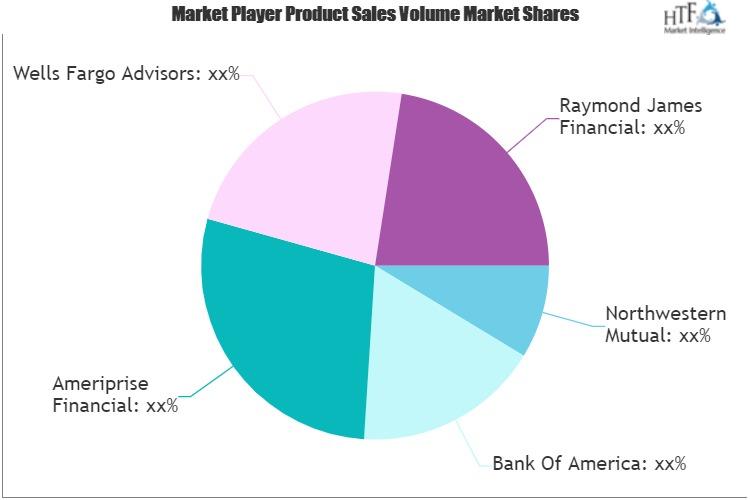
/newsSecurities Brokerages And Stock Exchanges Market Outlook 2021: Big Things are Happening
A new intelligence report released by HTF MI with title "Global Securities Brokerages And Stock Exchanges Market Survey & Outlook" is designed covering micro level of analysis by Insurers and key business segments, offerings and sales channels. The Global Securities Brokerages And Stock Exchange...
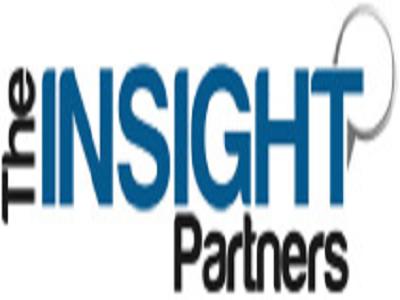
/newsRenewable Chemicals Market Emerging Trends and Competitive Landscape Forecast to 2028
The renewable chemicals market was valued at US$ 80,566.30 million in 2021 and is projected to reach US$ 1,76,750.76 million by 2028 it is expected to grow at a CAGR of 11.9% from 2021 to 2028. The research report focuses on the current market trends, opportunities, future potential of the market, a...
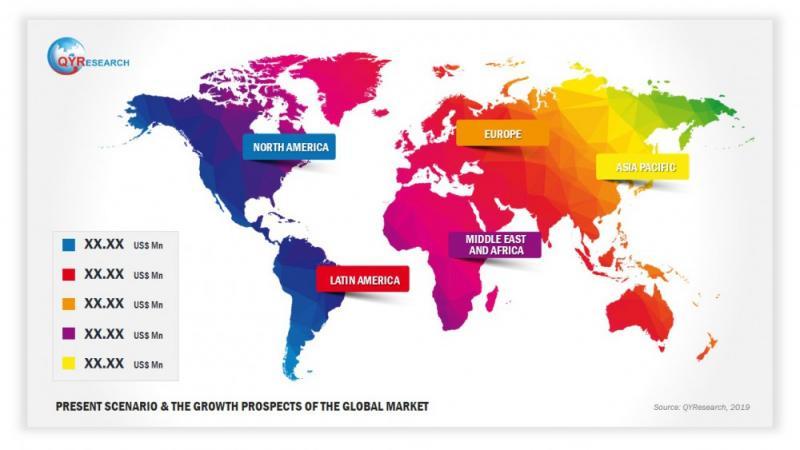
/newsHow Coronavirus is Impacting Cold Brew Coffee, Global Market Volume Analysis, Size, Share and Key Trends 2020-2026
"Market Latest Research Report 2020:
Los Angles United States, February 2020: The Cold Brew Coffee market has been garnering remarkable momentum in the recent years. The steadily escalating demand due to improving purchasing power is projected to bode well for the global market. QY Research's lates...
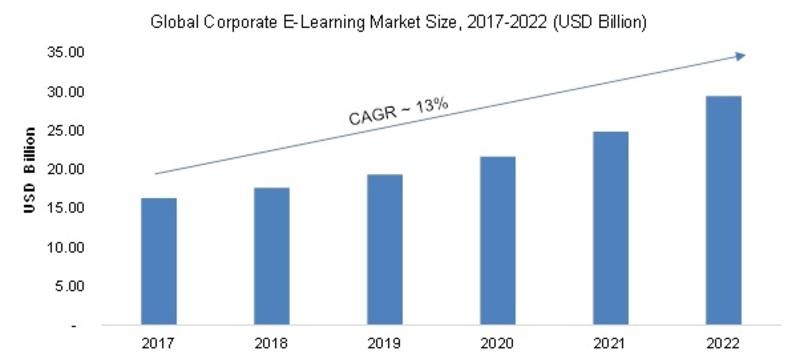
/newsCorporate E-Learning Market - Global Industry Size, Share, Key Players Analysis that are Infor, SkillSoft Corporation, Adrenna, CERTPOINT Systems and others with Regional Forecast to 2022
Overview:
E-Learning is used to enhance the learning procedures for newer job requirements and to make employees sound about the internal and external changes in the market and respective organizations. This method has created considerable differences in the ways of training and developing employee...
